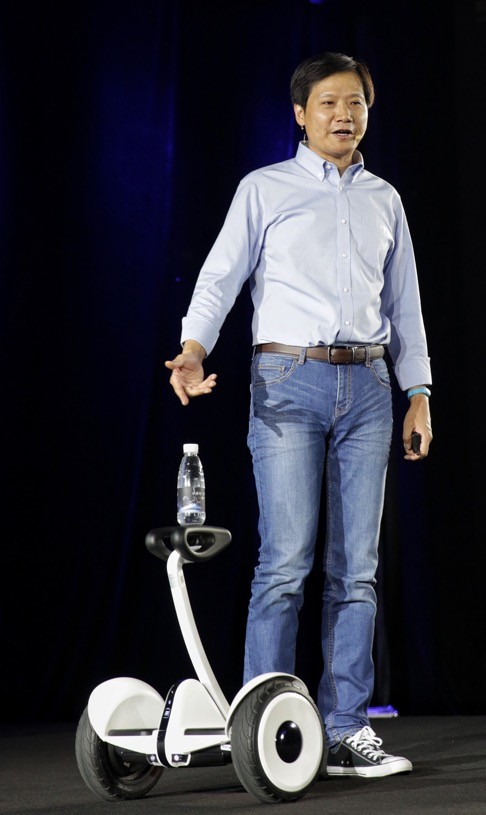
‘Everyone’s a potential consumer’: Xiaomi boss Lei Jun vows to invest in 100 start-ups as tech advances in rural China promise riches
Billionaire tech tycoon says ‘anyone is welcome’ to present ideas for his venture capital firm Shunwei Capital Partners to consider

Investing in businesses that stand to gain from increased internet access in rural areas is topping the agenda for Lei Jun, the founder of Chinese smartphone vendor Xiaomi.
“It’s just like a shoe merchant entering an inhabited island and seeing that no one is wearing shoes,” said Lei, one of the most influential entrepreneurs in China’s technology industries.
“It’s a huge market, and everyone is a potential consumer,” he added at a financial forum in Beijing on Friday.
Xiaomi was initially derided as an Apple clone but has recently come into its own. Following on from the huge success of its iPhone-like handsets, its US$12 fitness tracker become the world’s second-most-popular wearable this June.
Lei said he has already invested in over 10 start-up projects targeting firms that stand to gain from China's rapidly expanding internet penetration rate in its hinterlands.
He said he will continue to do so over the next decade through Shunwei Capital Partners, the venture capital firm founded by Lei
“You’re welcome to approach Shunwei if you have a good idea,” he said.
“We aim to invest in over 100 start-up projects.”
He declined to reveal details of the projects already embarked on out of respect for the other entrepreneurs involved, but said he was especially interested in internet finance and other web-based industries that are zeroing on populations in less developed areas in the country.
Many such future-oriented projects that have been launched in Chinese cities have yet to be introduced or implemented in rural areas, he said.
“So there are numerous directions in which we can further develop,” he said.
“The potential is huge, It is not necessary to do something that BAT have already done,” he added.
He was referring to a triumvirate of Chinese internet companies that have engaged in wild spending sprees in recent years and are now ushering in a period of industry consolidation.
They are China’s online search king Baidu, e-commerce giant Alibaba, known for its Tmall and Taobao online marketplaces, and social and gaming titan Tencent, which runs the hugely popular WeChat mobile messaging service.

While Xiaomi is looking at under-developed parts of China with one eye, it is keeping the other fixed on foreign markets as it bids to expand its presence globally, Lei said.
The company recently started launching its smartphones and other electronic products in Brazil, Indonesia and other countries and regions
But depreciating currencies in some emerging economies have presented it with new headaches as it moves to globalise its markets and operations, Lei said.
“Some have depreciated more than 40 per cent in the last year,” he said.
“That would have caused our costs to increase by a relative rate of 80 per cent, or even double.”
Xiaomi has not set fixed dates for when it will launch its handsets and other products in the US or Europe, he said.
“The right time has yet to come,” he remarked.
The company has developed rapidly over the last few years but will now refocus on its original goal of producing high-quality, innovative products, he added.